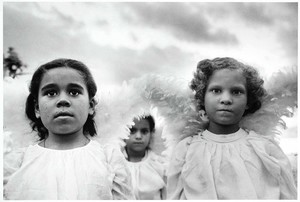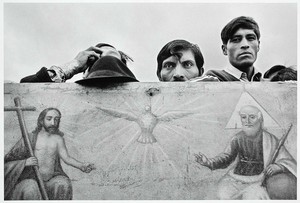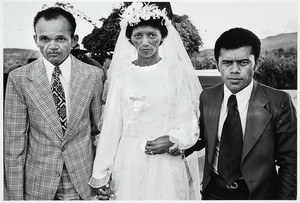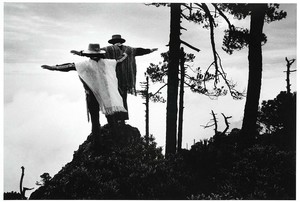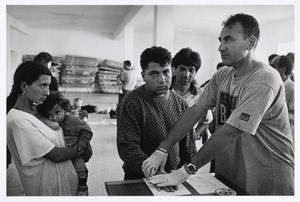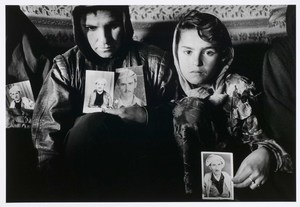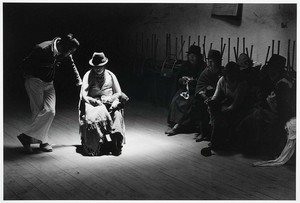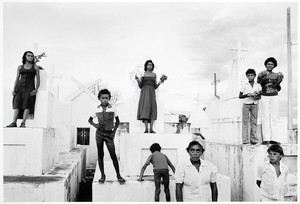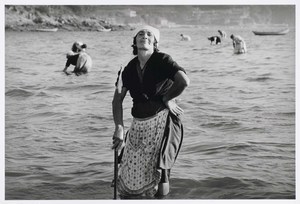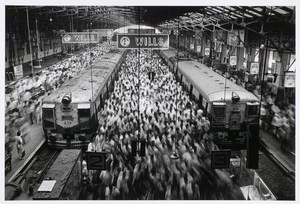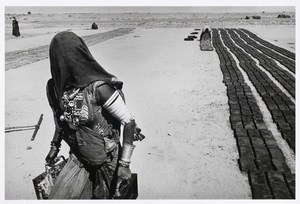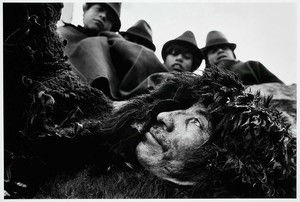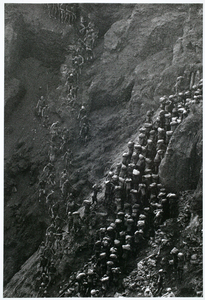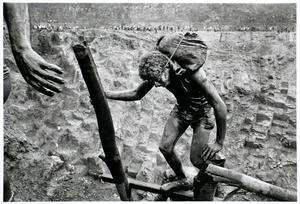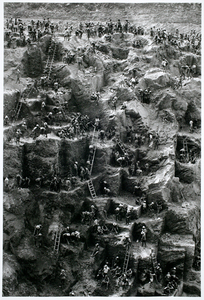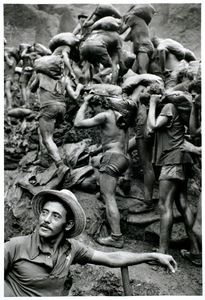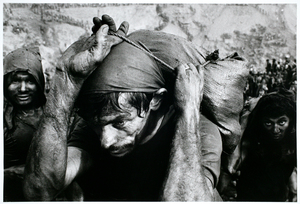Born in Aimorés, Brazil, Sebastião Salgado trained as an economist before becoming a photographer in the early 1970s. He earned an MA in economics from São Paulo University in 1968 and a PhD in economics from the University of Paris in 1971. His work at the International Coffee Organization in London required him to make frequent trips to Africa, and his desire to document these experiences sparked his interest in photography; by 1974 he was freelancing as a photojournalist for the Sygma agency in Paris. He then worked for Gamma from 1975 until 1979, when he joined Magnum, the international photography cooperative founded in 1947 by Henri Cartier-Bresson, Robert Capa, George Rodger and Chim (David Seymour). Salgado has produced a number of extended documentary series throughout his career, several of which have been published. These include Sahel: L'homme en détresse (1986), Other Americas (1986), An Uncertain Grace (1990), and Workers (1993), a worldwide investigation of the increasing obsolescence of manual labor. Salgado has won many honors for his work, among them the Eugene Smith Award for Humanitarian Photography, two ICP Infinity Awards for Journalism, the Erna and Victor Hasselblad Award, and the Arles International Festival's prize for best photography book of the year for Workers.
Sebastião Salgado's straightforward photographs portray individuals living in desperate economic circumstances. Because he insists on presenting his pictures in series, rather than individually, and because each work's point of view refuses to separate subject from context, Salgado achieves a difficult task. His photographs impart the dignity and integrity of his subjects without forcing their heroism or implicitly soliciting pity, as many other photographs from the Third World do. Salgado's photography communicates a subtle understanding of social and economic situations that is seldom available in other photographers' representations of similar themes.
Lisa Hostetler
Handy et al. Reflections in a Glass Eye: Works from the International Center of Photography Collection, New York: Bulfinch Press in association with the International Center of Photography, 1999, p. 226.



